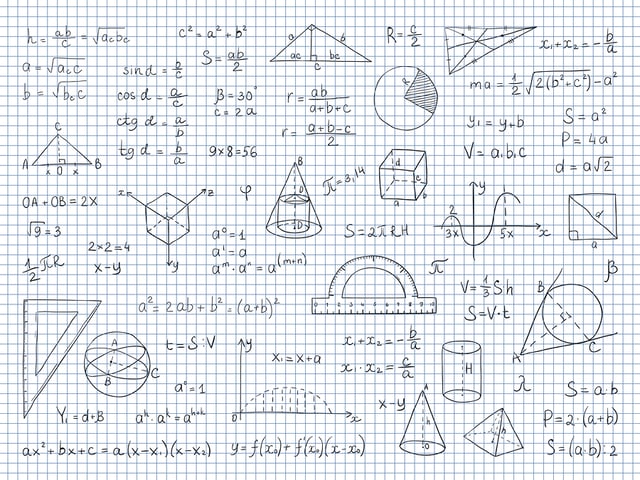
The GED Mathematical Reasoning Test: What You Need to Know
The GED, or General Education Development test, offers an opportunity for individuals to earn their high school equivalency credential. One of the key components of this test is the Mathematical Reasoning section. Here’s a comprehensive breakdown of what you need to know to excel in this test.
Format of the Test
The GED Mathematical Reasoning test is crafted to evaluate a test-taker’s math skills in a holistic manner. It does so by splitting the test into two distinct parts.
-
Calculator Section: This is the first part where test-takers are permitted to use an approved calculator. The questions in this section often involve more complex arithmetic or algebraic calculations. It’s important to familiarize yourself with the specific calculator model that is allowed, and ensure you’re comfortable using it to solve problems quickly and accurately.
-
Non-Calculator Section: The second section challenges your raw mathematical abilities without the aid of a calculator. It’s essential to hone your mental math skills and be adept at basic operations, estimation, and problem-solving strategies for this section.
Remember, the total duration for both parts combined is 115 minutes. This means that effective time management and pacing are crucial. It can be beneficial to take timed practice tests to gauge your speed and accuracy.
Content Areas
A detailed understanding of the content areas can provide a clearer roadmap for your preparation journey. Here’s a more in-depth look on what you’ll need to know for test day:
Quantitative Problem Solving (45%)
-
Basic Math: This will test foundational concepts, such as arithmetic operations, order of operations, and properties of numbers.
-
Geometry: While this is an expansive subject, for the purposes of the GED, you’ll need to familiarize yourself with concepts related to lines, angles, polygons, and circles. Understanding geometric formulas for area, perimeter, and volume will also be vital.
-
Basic Algebra: These questions will explore your understanding of linear equations, inequalities, and the basic manipulation of algebraic expressions.
-
Statistics: This area will evaluate your ability to interpret data, understand measures of central tendency (mean, median, mode), and analyze data distributions.
Algebraic Problem Solving (55%)
-
Advanced Algebra: Dive deeper into algebraic concepts, such as quadratic equations, systems of equations, and algebraic functions.
-
Geometry: In this content area, you might face more challenging geometry problems, including those that involve coordinate geometry or the properties of three-dimensional shapes.
-
Functions: This section will test your knowledge of different types of functions (linear, quadratic, exponential), their graphs, and their applications.
-
Patterns: Pattern recognition can involve sequences, relationships between numbers, or even geometric patterns.
Key Topics to Focus On
Preparing for the GED Mathematical Reasoning test requires an understanding of the central themes and areas of focus. By honing in on these key topics, you can significantly improve your chances of performing well on the exam.
Basic Mathematics
Basic math serves as the cornerstone for much of what you will encounter in the Mathematical Reasoning test. Mastery here will give you a solid base to tackle more complex problems.
-
Decimals: Understand place values, rounding off, and arithmetic operations involving decimals.
-
Fractions: Grasp the concepts of adding, subtracting, multiplying, and dividing fractions. Additionally, be proficient in converting fractions to decimals and vice versa.
-
Percentages: Learn to calculate percentages, increase or decrease a value by a given percentage, and find the original value given a percentage increase or decrease.
-
Number Operations: Delve into the four basic arithmetic operations (addition, subtraction, multiplication, division) and the order of operations (PEMDAS/BODMAS).
Algebra
Algebra acts as the bridge between basic arithmetic and higher-level math. This section will assess your ability to work with unknowns and complex mathematical relationships.
-
Variables: Grasp the concept of a variable as a stand-in for an unknown quantity and understand how to manipulate expressions involving variables.
-
Linear Equations: Master the art of solving equations of the form \(ax + b = c\) and systems of linear equations.
-
Polynomials: Understand what constitutes a polynomial, how to add, subtract, multiply, and factor them.
-
Quadratic Equations: Dive into equations of the form \(ax^2 + bx + c = 0\), learn the quadratic formula, and understand the significance of the discriminant.
Geometry
The world is filled with shapes, and geometry is the study of these shapes and the space they occupy. This section will challenge your spatial reasoning and understanding of geometric principles.
-
Shapes: Familiarize yourself with both 2D (circle, triangle, rectangle, etc.) and 3D shapes (cube, cylinder, sphere, etc.).
-
Angles: Understand concepts related to complementary, supplementary, and opposite angles.
-
Measurements: Be adept at calculating perimeter, area, and volume of common geometric shapes.
-
Theorems: Delve into fundamental theorems like the Pythagorean theorem, properties of parallel lines, and circle theorems.
Graph and Functions
In the digital age, being adept at deciphering graphs and understanding functions is crucial. This section will evaluate your proficiency in these areas.
-
Statistics: Gain proficiency in central tendencies, including the mean, median, and mode, as well as concepts like range and standard deviation.
-
Probability: Develop a strong foundation in probability, focusing on determining the chances of single or combined events happening.
-
Graph Interpretation: Enhance your ability to interpret and derive insights from various graphs, such as bar graphs, pie charts, line graphs, and histograms, as well as tables.
-
Function Analysis: Understand how to dissect data sets, pinpoint trends, detect outliers, and make informed predictions based on the presented data.
Tips for Success
Navigating the challenges of the GED Mathematical Reasoning test can be made significantly smoother with the right strategies. Below, we dive deeper into four pivotal tips that can pave the way to your success.
Practice Regularly
It’s often said that practice makes perfect, and when it comes to mathematics, this adage holds true.
Consistency is Key: Regular practice ensures that mathematical concepts remain fresh in your mind. Set aside dedicated time each day or several days a week for GED math preparation.
Diverse Resources: Utilizing a variety of resources can expose you to a wide range of question types. Apart from traditional preparation books, many online platforms offer GED practice tests, study guides, and video lessons tailored for the GED.
Simulated Testing: Periodically, take full-length, timed practice tests to simulate the test environment. This not only helps gauge your preparation level but also builds stamina.
Review Math Formulas You will be provided with a math formula sheet during the exam, so there’s no need to spend time memorizing formulas for test day. However, it’s a good idea to familiarize yourself with these formulas beforehand, ensuring you know how and when to apply them efficiently during the test.
Understand the Concepts
A superficial approach might help in the short term, but for lasting success, you need depth in your understanding.
-
Beyond Memorization: While it’s essential to remember formulas and certain properties, strive to understand why they work. This deeper understanding can help you tackle unfamiliar problems.
-
Ask ‘Why’: When studying a concept, always ask yourself ‘why’ it’s true. Engage with the material by questioning and reasoning.
-
Discuss and Teach: Talking about what you’ve learned or trying to teach it to someone else can further solidify your understanding.
Use a Calculator Efficiently
A calculator is a tool, and like any tool, its efficacy depends on the user.
-
Know Your Calculator: Spend time exploring the specific functions and shortcuts of the TI-30XS, which is the only approved calculator model for the GED. Familiarity can significantly speed up your calculations during the test and help reduce your overall stress level. While you are allowed to bring your own calculator to the testing center, don’t fret if you don’t have one — you will be given access to an onscreen calculator if needed.
-
Practice with It: When solving practice problems, always use the same calculator model that you’ll use on the test day. This helps build muscle memory and efficiency.
-
Limit Dependency: While a calculator is useful, it’s essential not to become overly reliant on it. Ensure you have strong mental math skills for simpler calculations to save time.
Time Management
The clock can be a significant source of pressure, but with the right strategies, you can master it.
-
Pace Yourself: Understand that not all questions are created equal. Some might take longer than others. It’s okay to skip a challenging question and come back to it later.
-
Set Benchmarks: For instance, you could aim to complete a certain percentage of the test in half the allotted time. These benchmarks can help you adjust your pace as you go along.
-
Practice Under Time Constraints: When taking practice tests or solving sets of problems, always set a timer. This not only gets you used to the pressure but also helps you improve speed.
Incorporating these tips into your preparation routine can greatly enhance your confidence and performance on the GED Mathematical Reasoning test. Remember, the journey to acing the test is a blend of knowledge, strategy, and perseverance.
Keep Reading

General Education Development Test Blog
Can You Join the Military with a GED?
The GED was created in 1942 to help members of the military and vetera…

General Education Development Test Blog
Is the GED Harder Than High School?
Are you wondering if a GED diploma is right for you? You aren’t alone: …

General Education Development Test Blog
How is the GED Scored?
Each year, roughly 59% of people who take the GED, a popular high schoo…